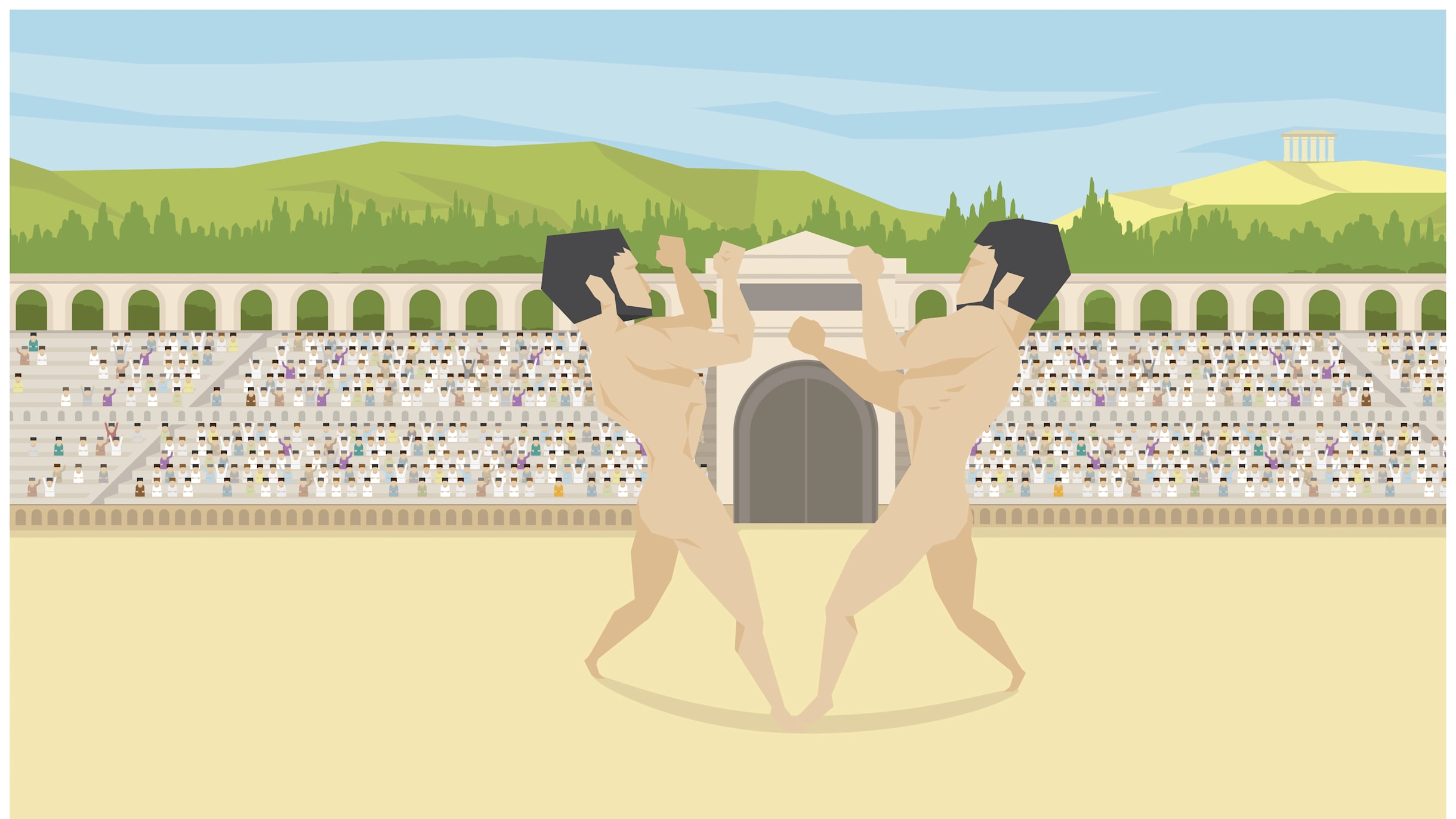
Boxing
Honour rules
Honour rules despite tough nature of boxing at Ancient Games. With no weight classifications, no scoring system, no time limit and death a real possibility, boxing at the Ancient Olympic Games appears to have been a brutal and barbaric affair. But in reality, honour, respect and fair play were always at the fulcrum of this noble art.
It is no accident that Diagoras of Rhodes was one of the most celebrated pugilists of ancient times. The victor at the 79th Olympiad in 464BC is said to have never ducked, stooped, or sought to evade a single punch. Instead the crowd favourite stood face on and took all that his opponent could throw at him while searching for his own knockout blow.
This sense of dignity is one that modern Olympians recognise. “You know that once someone has got to the Olympic Games they are of a certain standard, so you just have that instant respect for them and their craft,” said Lawrence Okolie, who fought for Great Britain as a heavyweight at the Rio 2016 Olympic Games before turning pro in 2017.
When you box in the Olympics there is hardly any trash talking, there are hardly any dirty stare-offs. It’s just mutual respect, mutual love. Because you have to respect someone who loves something you love also.
In what is perhaps a less entertaining but no less honourable manner, Melankomas of Caria became a great favourite of ancient commentators for his infinite skill in not only avoiding punches, but also refusing to strike his opponent. The Olympic champion in AD45 simply ducked, weaved and blocked until his opponent fell down in exhaustion, and no doubt exasperation.
With no time limits, and a break only if and when the referee and both fighters agreed, Melankomas was said to have once fought, or not fought as the case was, for two days solid without ever lowering his guard.
Chasing one's opponent
The fact line-ups were decided by lots drawn at the beginning of each Ancient Games increased the chances of long, drawn-out contests with smaller, agile men avoiding dangerous but cumbersome opponents. The frustration of chasing an elusive fighter is something 6ft4in Okolie knows well.
“I do it in training,” said Okolie of hours spent sparring against nimble opposition. “That is one of the hardest things in boxing. Being punched hard, you can prepare yourself mentally for that. You can get yourself mentally ready for giving and taking damage. But there is nothing like throwing punches and there is no one there.”
The fact that fighters of vastly differing sizes and styles enjoyed success across the span of the Ancient Games owed as much to changes in equipment as it did to developments in the sport. At first, Olympic boxers wore soft ox-leather woven around their hands and wrists. This encouraged quick, agile attacking boxing. Through Roman times and beyond, however, the leather became harder and at times lead studs were even added. Naturally, contests became focused on defence, with slower, heavier athletes flourishing.
Glaucus of Carystus and his ploughshare
Strength came to the fore and was a quality held in huge regard by fans. Stories abound of feats of semi-divine muscle-power, with the heroes of many such tales rising into the realms of myth. Glaucus of Carystus is one such engaging character. A farmhand, Glaucus is said to have been found by his father hammering a ploughshare into a plough with his bare fists. On the spot the old man pledged to take him to the next Olympiad, which he duly did. The youngster reached the final but, badly bruised and battered, he is said to have been down and out until his dad shouted at him to “remember the ploughshare”. Glaucus looked up and immediately knocked his opponent out, taking the wreath.
The klimax
Any such advantage, mental or physical, that could be gained was crucial. If two fighters could not, however, be separated, there was one, radical answer left. Both men could agree to seek klimax. This was a system whereby first one fighter and then the other was allowed a free, unencumbered shot at his opponent. The drawing of lots to see who went first was more than a little critical.
“Oh my goodness man. No. That is… No. You don’t want that,” was Okolie’s reaction to being told of this method of ending a fight.
It was an unforgiving finale but one that the honourable Diagoras, whose three sons all won Olympic boxing titles, no doubt felt was fitting for his sport. While modern professional boxing involves at times brash, outlandish noise, far removed from the ideals of one-to-one combat, it is worth noting that Okolie, who was clinically obese as a teenager, was inspired to take up the sport by the example of an Olympic legend, close in spirit to Diagoras himself.
“You look at Anthony Joshua (London 2012 heavyweight champion) as an athlete and a role model,” Okolie said. “You watch how he has moved as a professional, no trash talking, no nothing. He sold out Wembley Arena (for his world title unification fight against Wladimir Klitschko in April 2017) with his opponent without any bad words about each other. None.
“You are just letting your craft do your talking for you.”